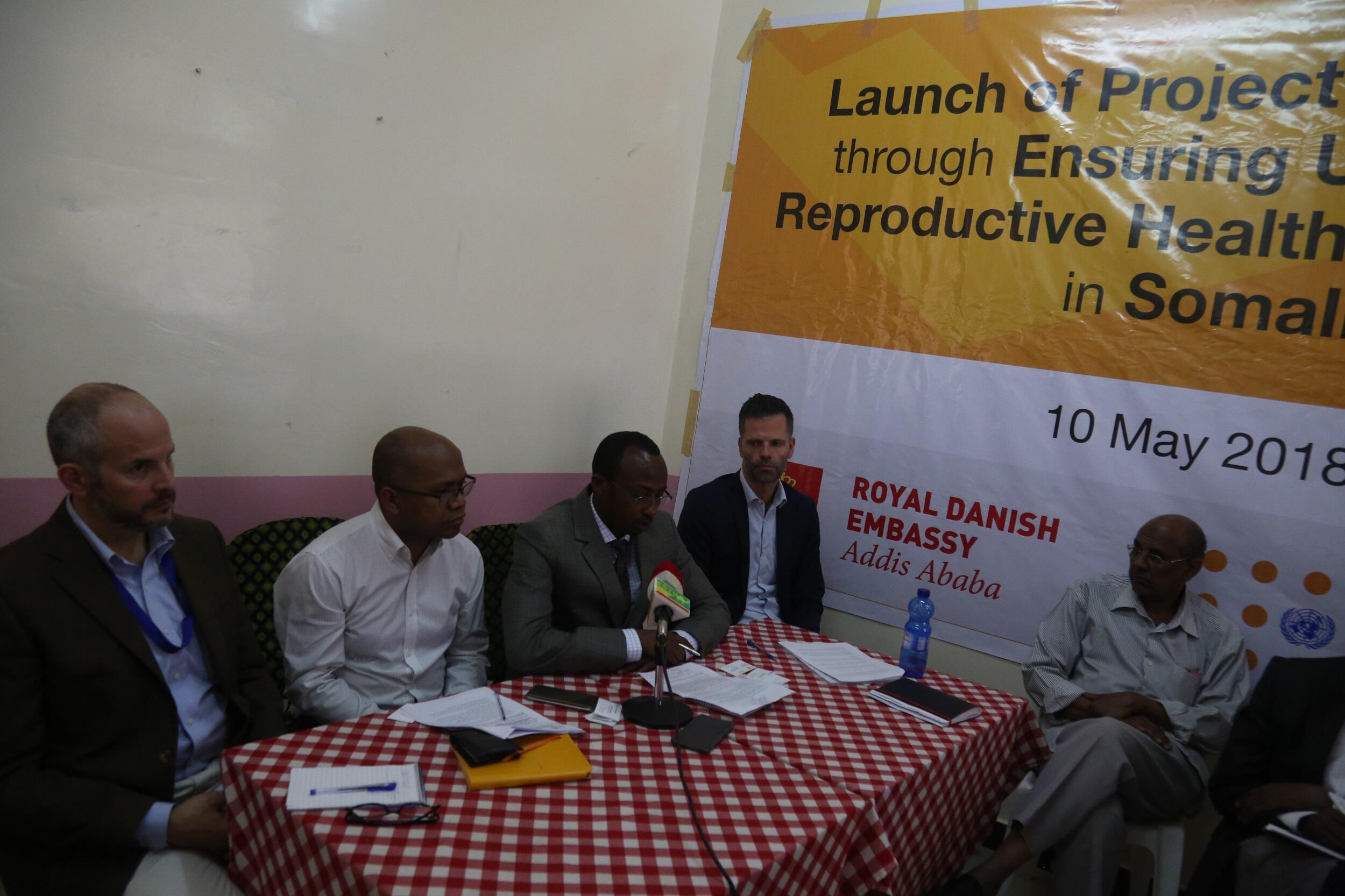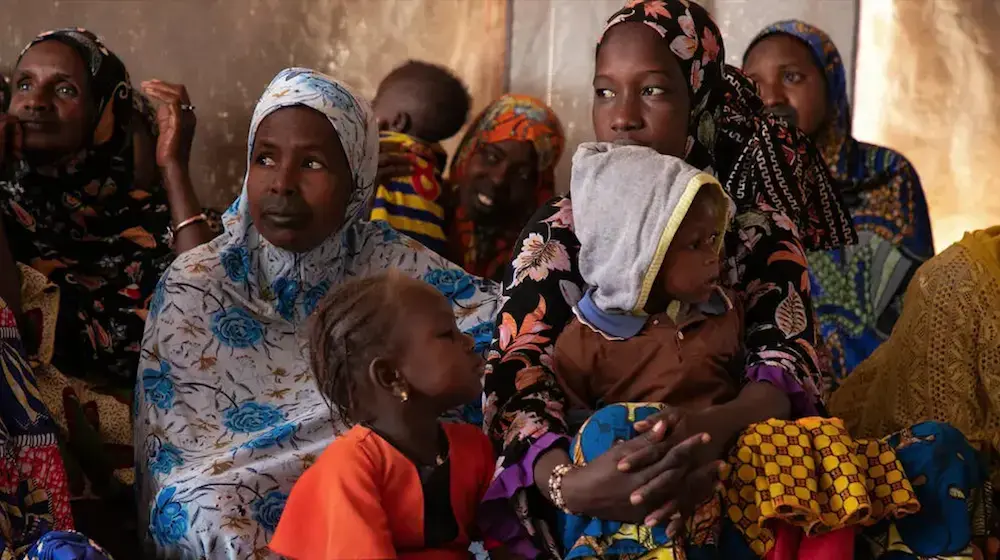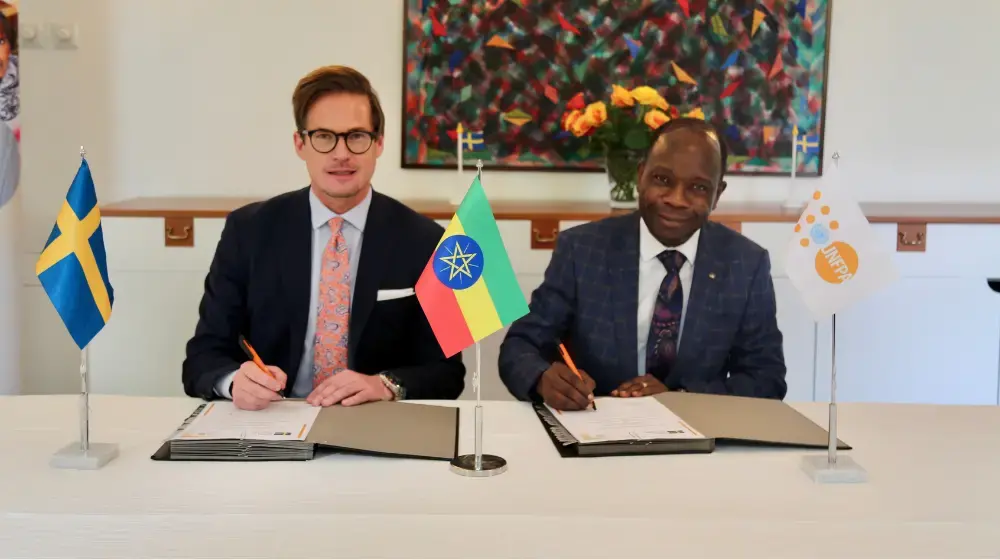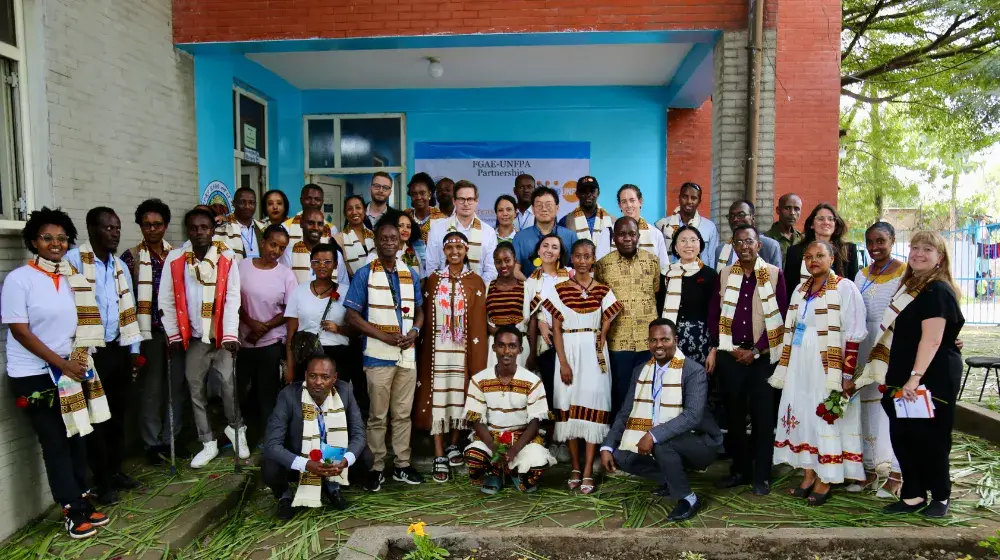UNFPA and Denmark officially launched on May 10 a three-year project on building resilience through universal access to Sexual Reproductive Health and Rights Services in the Somali Region. The project is funded through a co-financing agreement between UNFPA and the Government of Denmark amounting to approximately USD 3.3 million.
Making remarks on the occasion, Mr. Ahmed Abdi, Head of the Somali Region Bureau of Finance and Economic Development, said that improving the health status of women and girls is one of the key priorities of the Somali Region as stipulated in the Growth and Transformation Plan (GTP II) and the Health Sector Transformation Plan. He indicated that the Somali Regional Government is committed to support implementation of programmes combining development and humanitarian components noting that the project would help the Somali community in addressing their reproductive health and rights needs.
Mr. Åge Sandal Møller, Deputy Head of Mission of the Embassy of Denmark expressed that his country’s a strong global advocate of universal access to sexual and reproductive health and services and women’s and girls to decide over their bodies is a basic human right. “We place sexual and reproductive health and rights of women and girls at the centre of our work and our development cooperation. It is a central element of Denmark’s strategy for development cooperation and humanitarian action for the world of 2030,” he added.
The project was signed in December 2017 and implementation has been underway since January. The project will make an important contribution in creating a nexus between development and humanitarian assistance as it will be integrated into the ongoing government-led resilience building programming in the Rural Productive Safety-Net Programme districts in in the Somali Region.
Mr. Rakoto Victor, Deputy Representative of UNFPA, said at the event that reproductive health and rights, gender equality and youth empowerment are at the core of the 2030 Agenda for Sustainable Development and fundamental to achieving sustainable development in every context. “In this endeavor it is important to ensure that every woman everywhere has access to sexual and reproductive health care as women don’t stop having babies when a crisis breaks out or a disaster strikes,” he remarked.
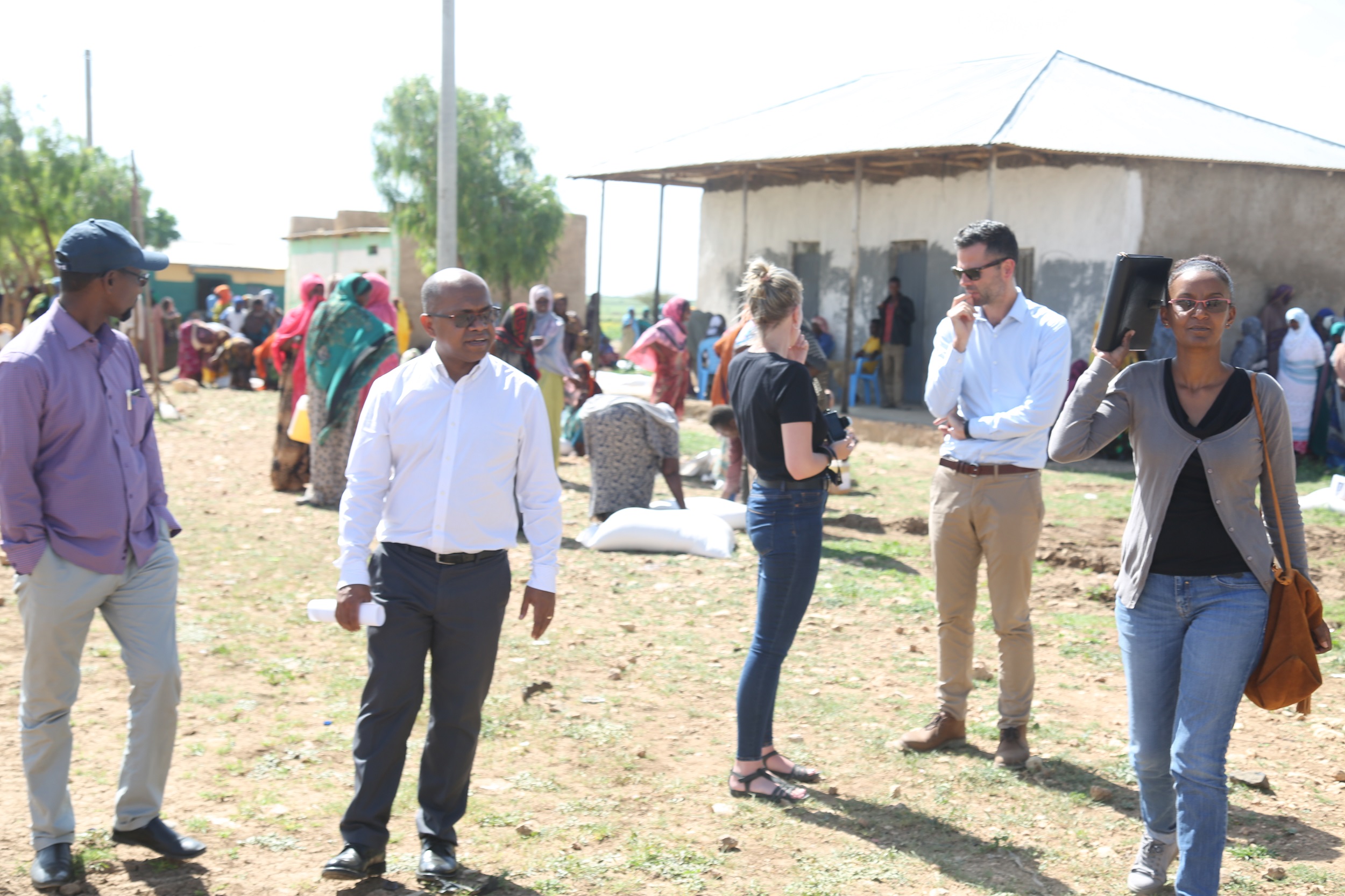
The pilot project is based on an innovative partnership between UNFPA and the World Food Programme (WFP), where linkages will be made between humanitarian food distribution and Sexual and Reproductive Health and Rights targeting women and girls affected by drought. This project promotes a long-term solution to vulnerable populations receiving humanitarian assistance and provides information on sexual and reproductive health and rights and family planning to internally displaced persons in their settlements. It also provides direct access to family planning services to the young women and mothers.
The project is implemented in 9 woredas and 1 city council in the Sity and Fanfan Zones of the Somali Region which are severely affected by recurrent drought where humanitarian food distribution is being undertaken by WFP for clients embraced by the Rural Productive Safety-Net Programme.
Senior officials of the Somali Regional Government, representatives UN Agencies, and civil society organizations attended the ceremony.
Meanwhile, a visit was made to the WFP food distribution point at the Amadle locality to showcase how this platform will be used in providing information to women on sexual and reproductive health information and services linking with a nearby health facility.

